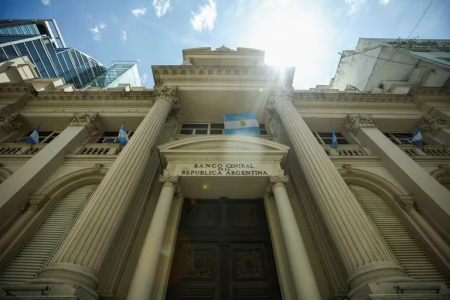All the Answers
Well-known member
For The Economist, 100 days after taking office Milei can boast of “true economic success” - Infobae

Source:
March 20, 2024
The English media made a positive analysis of the beginning of the Argentine President's administration, although it questioned the advance of poverty in the country and the lack of clarity regarding the promises of dollarization.

The English media reviewed the main measures taken by Milei since he became President. (Photo by Marcelo Endelli/Getty Images)
The renowned British media, The Economist , dedicated a new article to the Argentine president, Javier Milei, this time analyzing his performance as national leader during the first 100 days in office. The publication focuses mainly on the positive aspects of the decisions taken by the new Government, but does not leave aside some sensitive issues, such as the increase in poverty, the fall in consumption and the high inflation rates.
To summarize its perspective on the beginning of management, The Economista states that “after 100 days (Milei) can boast of true economic success.”
“His popularity remains, even when he lacks support in Congress . If he can keep the public on his side until the midterm elections at the end of next year, he could dramatically strengthen his influence and therefore his ability to remake Argentina's economy. But Argentines are already suffering deeply and could abandon it much sooner. That would be a blow to radical reformers around the world,” they comment.
The article lists some of what it considers “economic successes” of the national leader. “To prove that there will be no more money printing, Milei is obsessed with achieving a budget surplus, meaning the government taxes more than it spends. He says he will achieve a surplus (before interest payments) this year of 2% of GDP (Gross Domestic Product), a big change from last year's 3% deficit. In both January and February, the government achieved monthly surpluses, the first in more than a decade,” the article highlights.
In the following paragraph, mention is made of “Milei's chainsaw” and the cuts to energy and transportation subsidies, transfers to the provinces and capital expenditures are highlighted. “He also relied on another tool: the blender. Increasing spending below inflation is a reduction in real terms, known in Argentina as liquefaction. Expenditure on contributory pensions, the most important budget item, fell by almost 40% in real terms compared to the first two months of last year,” notes the English media.

The publication analyzes the effects of the peso devaluation implemented by the BCRA.
Likewise, the note highlights two other major movements. “In December it devalued the peso by more than 50% to partially close the gap between the official exchange rate and that of the black market. However, that raised inflation. The same thing happened with the interest rate cuts in December. Normally, central banks raise rates to fight inflation. The bank's reasoning was that lowering rates would reduce interest payments on its own bonds, reducing the amount of money in circulation. Inflation initially spiked to a monthly rate of 26% in December. That hurt the Argentines, but it supercharged Milei's blender,” they analyze.
“The government says its results justify its difficult decisions,” notes The Economist. “In addition to monthly fiscal surpluses and inflation now trending downwards, the gap between the official exchange rate and the black market rate is only around 20%. Foreign currency reserves have grown by more than 7 billion dollars. And the government successfully extended the maturity of piles of peso debt, reducing pressure on the Treasury. The IMF is satisfied; The markets are starting to believe. Argentina's country risk index, a measure of the probability of default, has had a reassuring downward trend," they point out.
Argentina's problems
For The Economist, there are “very serious” problems in the country that present an enormous challenge for Milei's management. “Hit by inflation, it is estimated that 50% of Argentines are in poverty, compared to 38% last September. In real terms, salaries have been delayed by 20 years, calculates the consulting firm Invecq . In addition, the economy will contract 4% this year, Barclays bank calculates ,” the publication maintains.On the other hand, they explain that these difficulties can be especially dangerous for presidents in Argentina, literally. “In 2001, one fled the Casa Rosada, the presidential workplace, in a helicopter for fear of violent protesters,” they recall.
However, they acknowledge that Milei's approval ratings remain remarkably high, around 50%, despite the economic pain. “This is mainly because he has managed to blame caste for putting Argentina in this mess,” notes the English site.

The Economist highlights that poverty is around 50% in Argentina. EFE
“Even so, Milei's first 100 days are marked by serious problems. Beyond the pain, the economic plan is plagued by uncertainties. One of the risks is the exchange rate. In an attempt to curb inflation, the government is devaluing the peso by 2% each month. However, with monthly inflation well above 2%, it is probably less than necessary. Unfortunately, a faster advance or a sharp and sudden devaluation would cause more inflation,” they comment from The Economist.
Dollarization and uncertainty
For the English medium, Argentina will inevitably soon have to switch to a new monetary and exchange regime. The question, he poses, is when, and in what regime.“Milei's plan is to eliminate capital controls and unify exchange rates. But will the government introduce an orthodox monetary program in pesos or will it try to dollarize the economy? Milei's campaign promise to dollarize has become vague since he took office. The government now talks more about 'exchange competition' (allowing transactions in dollars or pesos),” maintains the English media.
“However, when asked if dollarization is off the table, Pablo Quirno , the Secretary of the Treasury, is wrong. Dollarization is 'a way to basically bury the [money] printing machine,' he says. It is 'more of a moral discussion'. The uncertainty is already causing nervousness among investors. The government has also hinted that it will pursue a new IMF program, perhaps worth $15 billion, but that may also be difficult without clearer plans,” the article adds.
Finally, he highlights that the surplus in February was lower than that of January and emphasizes that the recession is hitting tax revenues hard. “One of the big savings was in energy subsidies, but much of that was only postponed, not canceled,” The Economist highlights.

